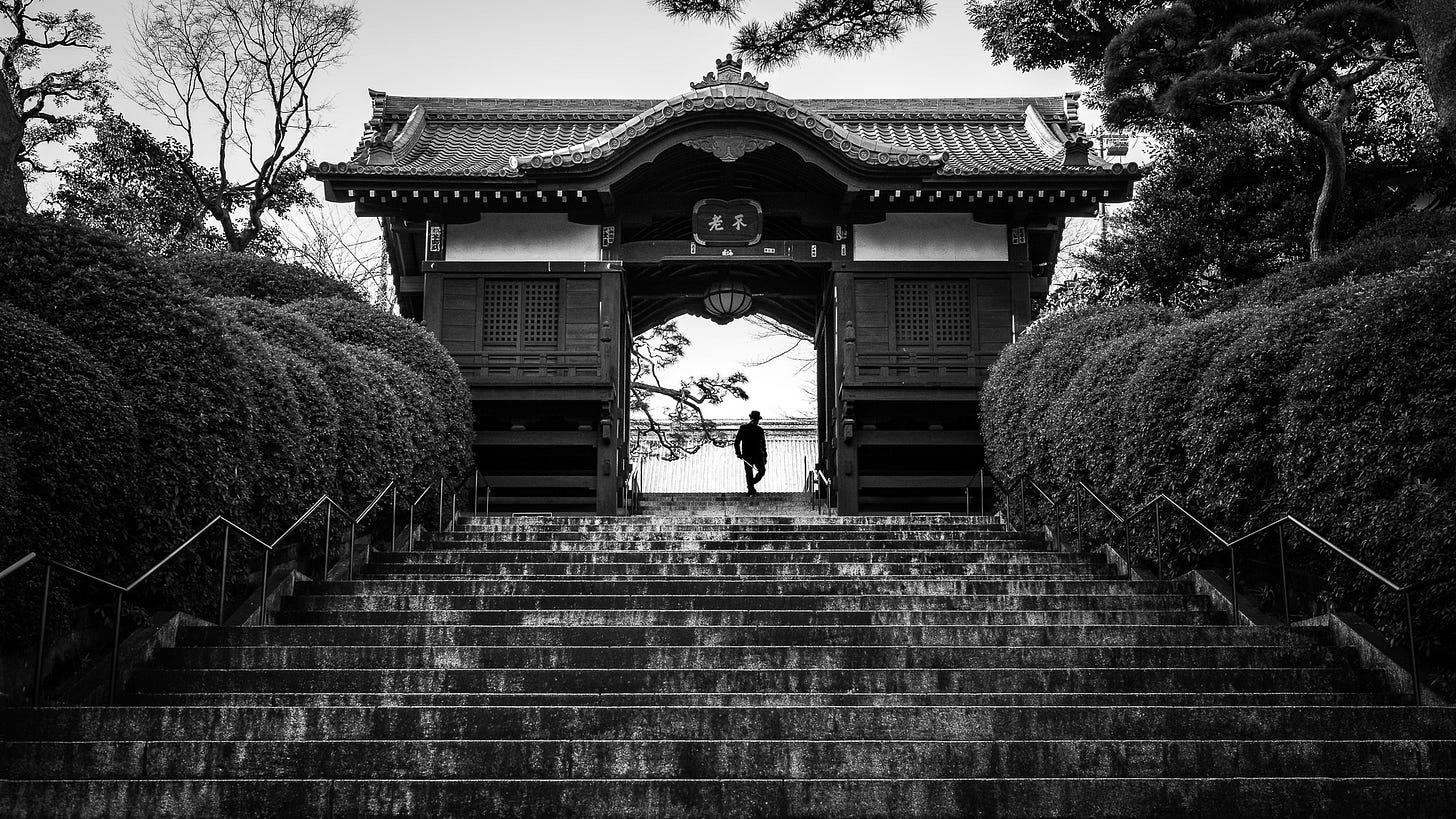Welcome to my new serial “Bonsai on the Ledge,” a tale of espionage and deceit set in 1990s Tokyo. I hope you read along.
-Jack
“Bad and good are intertwined like rope.”
JAPANESE PROVERB
On the evening of January 8, 1992, panic was beamed live from Tokyo to televisions across the world. No one was sure what they had just seen on their screens, but it wasn’t good.
At a U.S.-Japan state dinner party, President George Bush without warning turned sheet white, vomited into the lap of Japanese Prime Minister Kiichi Miyazawa sitting next to him, and collapsed like a rag doll below and behind the table they were sitting at. The president seemed to have just been poisoned before the world’s eyes. Speculation was immediate.
Cyanide! Iran! Russia…?
For the first five minutes, CNN and NHK could only report that the president was down. Announcers fought to keep calm.
First Lady Barbara Bush rushed behind the president’s chair. She held a large white cloth napkin to his mouth as he was replaced back into his seat and propped upright by security and other diners. The president though was unconscious, and his limp body was soon hustled out an exit by Secret Service.
The U.S. ambassador to Japan was heard off camera saying, “Call Vice President Quayle.”
Soon however Japanese spokespeople were able to reassure the world that Bush had been revived outside the banquet and was in the care of doctors. The leader it seems had been hit with a bad food bug most likely picked up on his regional sweep.
The incident came at a time when the world already seemed to be in flux. Only two years prior, the Berlin Wall had fallen and the global order had shuffled overnight. Decades-long alliances and geopolitical assumptions were now in question.
Japan was undergoing its own wrenching change. Its vaunted Bubble Economy—once stoking growth not only at home but in most every corner of the globe—had spectacularly collapsed in on itself. At the opening of 1992, however, there was still belief that the Japanese miracle could be resuscitated.
Any lasting eclipse of Japan could be disastrous for the Pacific. The country was the most critical democratic outpost in Asia, and President Bush had come to discuss extensions of security arrangements. Before his emergency, he had implored Japan to take a lead role in filling the vacuum that the collapsing Soviet Union was quickly leaving behind in Asia and around the world.
That evening Kyle Wright, a 26-year-old American living on the outskirts of Tokyo, was alone watching the television in his 15-square-meter apartment. He bolted forward when he saw the president collapse, but like the rest of the world was soon reassured by news of his recovery.
Kyle had arrived in Japan straight out of California university four years earlier. He was first employed rewriting English-language sales brochures at a Second Section TSE-listed Japanese electronics manufacturer, but even now several years later, he still lacked savings or meaningful spending money.
He was just picking up rudimentary Japanese conversation by taking notes and memorizing phrases with homemade flash cards—given his stretched finances, costly schools or taking time off work to focus were not viable.
Kyle loved living in Japan—he often said every day was an adventure as well as a lesson—but it was lonely. English speakers were few then even in the capital city. He had a spattering of foreign-born friends living in Tokyo but none really in geographic proximity.
“You are innocent boy,” a Japanese friend once told him with a laugh. Kyle didn’t know if that was a compliment—so he took it to mean he came across as non-threatening. He had a quiet demeanor among newer faces, that was for sure, but internally he thought a great deal about the world and the people around him. His mind in fact tended to race—Kyle often carried on an inner dialogue and he had an odd habit he disliked greatly of mumbling when alone.
Kyle’s apartment was in almost unknown industrial corner of southwest Tokyo called Kita Kojiya. The neighborhood abuts Tama River and across that waterway is Kanagawa, the next prefecture. Two of Haneda Airport’s runways are only two kilometers away, so much of Kyle’s neighborhood was warehouses, long-term storage, freezing facilities, and truck parking yards. At night Kyle could also hear a low hum from two nearby tap water treatment plants that gave off faint chlorine odors when the breeze blew the wrong way.
Kita Kojiya had many blue collar, long-term resident families but few newcomers. It was as if time had stopped for the neighborhood in 1970, and while the rest of Tokyo zoomed through decades of economic growth and cultural exploration, Kita Kojiya simply tagged along for the ride, all but forgotten.
Like any new face in that town—Japanese or foreign—Kyle was tolerated by neighbors but not exactly welcomed. He made friends with a downtrodden older man who regularly wheeled a portable ramen cart through the area—maybe the two recognized in each other a shared interloper identity.
The vendor learned Kyle’s name and called out to him when he saw the American coming home late from work. “Kyle-san! Raaaaamen yo!” He often parked his cart in a child’s play area a few steps from Kyle’s building. Kyle believed the vendor’s name was Saito-san, though he was never sure that with his still-learning ear he had caught it right. In any case, Kyle would call back, “Evening, Saito-san!” and the old man never corrected him.
The vendor was scruffy, a careless “none of your business” look almost never seen in Tokyo in those times. He wore a sweat towel wrapped around his balding head, and his chin had sparse but long black and grey beard hairs.
The man kept four rusty stools to set around his cart, and he served only soy sauce ramen, cool-ish beers, and room-temperature sake. There were no juices, teas, or colas. This was a drinker’s shop—a place to stop for one last bite and maybe a final belt before returning to a darkened home with everyone else already having gone to bed.
Dishing out the ramen, the vendor often rattled on in Japanese to Kyle, probably knowing perfectly well the American kid could understand none of the conversation. He could have been speaking about the dalliances of his ex-wife, or about the recent price and quality of soy sauce, it wouldn’t have mattered. By being spoken to, Kyle simply enjoyed the feeling of being visible. He listened best he could to the jumble of words and said “hai” in response whenever it seemed appropriate.
One night it was cold and raining on return to his apartment. He heard, “Kyle-san! Raaaaamen wa?" The cart now was draped in clear plastic flaps that formed a waterproof roof and makeshift doors. The covering kept customers dry and captured just a bit of interior warmth. Kyle couldn’t resist—he had never seen a ramen tent before. He flipped open one of the plastic sheets, stepped inside, and took a stool.
“Evening, Saito-san. Sake kudasai.”








Deer unaware. You are so innocent.
Trouble coming.
Oh, intriguing! It's always fun to read about foreigners in Japan before English got more widespread, a Japan even more unsuited to non-Japanese speakers that I never experienced. How exciting but also how much more frustrating! And how is the collapse of the U.S. president related to Kyle's story?
Looking forward to more 90s Tokyo vibes!